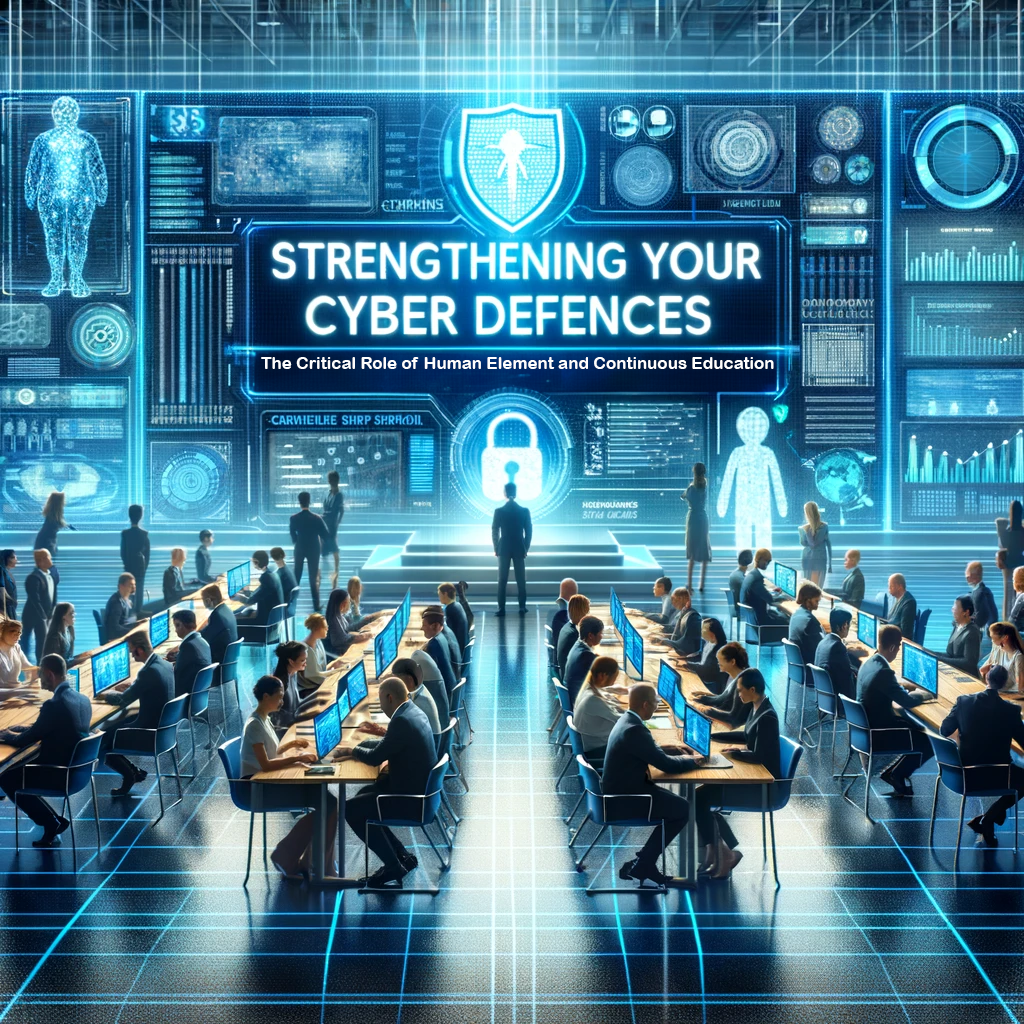The digital age has bestowed countless conveniences and streamlined operations in the business world. However, this evolution also comes with its fair share of vulnerabilities, particularly human-related ones. Before we delve into the transformative power of cybersecurity education, let’s explore a telling back story that highlights just how exploitable human nature can be.
Back Story: Exploiting Human Vulnerability – Operation Lying Doggo
In a real-life testament to the critical role of human psychology in security, let’s reflect on a notable historical instance, famously known as “Operation Lying Doggo.” In this covert operation, the CIA sought to infiltrate a high-security foreign facility. Recognising that brute force or high-tech hacking methods would trigger alarms, they instead turned their attention to human patterns and vulnerabilities.
The operation centred around a simple, yet ingenious, method of exploiting routine and complacency. Over several months, operatives observed that a particular employee had a habit of bringing his dog to the facility, a routine that became so familiar that the security guards ceased to give it thorough scrutiny. Seizing upon this lapse in vigilance, the CIA collaborated with expert costume designers to create a lifelike dog costume. An operative, disguised within this deceptive suit, was able to walk right through the facility’s gates, undetected by the guards who had grown accustomed to the innocent sight of the employee’s pet.
“Operation Lying Doggo” serves as a stark reminder that in the realm of security, human habits and assumptions can form the weakest link. This story, while unique in its details, underscores a universal truth: the greatest vulnerabilities often lie not in the hardware or software, but in the routine behaviours and unchecked assumptions of individuals.
The Cyber Kill Chain and Human Involvement
Your Content Goes Here
The concept of the “cyber kill chain” outlines the stages of a cyber-attack, from reconnaissance to data exfiltration. Humans can inadvertently play a role at each stage, much like a rock climber seeking the smallest cracks for a leveraged climb, so does cyber attackers. Just as climbers analyse the rock face for cracks to leverage their climb, cyber attackers scrutinise for human errors—be it through misconfigured settings, weak passwords, or unsuspecting clicks on malicious links to penetrate and gain a foothold on the network.
The Human Error Statistics
Recent data reveals an alarming truth: 82% of all cyberattacks involve the human element, highlighting the critical role of human behaviour in cybersecurity incidents. The Version 2023 Data Breach Investigations Report further supports this, indicating that human error was involved in approximately three-quarters of analysed breaches. This includes incidents involving social engineering, which can be particularly effective in business email compromise campaigns and emphasises that stolen credentials were used for initial access in nearly half of the breaches.
The repercussions of these human errors are not trivial; they lead to substantial financial and reputational damages. For example, organisations face the dual threat of ransomware, where 78% of victims faced additional threats unless the ransom was paid, escalating the consequences beyond simple data encryption.
Moreover, misconfigurations, loss of devices, and weak password practices continue to be predominant factors contributing to security breaches. Shockingly, common weak passwords like “123456” or “password” are still in use, despite their known vulnerabilities to brute force attacks.
Recent data breaches at companies like Air Europa, 23andMe, and Forever 21 highlight the severe impact of human error on corporate security. These incidents have led to significant financial and reputational damage, underscoring the importance of cybersecurity measures. Specifically, the breach at Forever 21, impacting 500,000 customers, could lead to losses exceeding the average global data breach cost of $4.24 million, as reported by IBM in 2021. This figure includes direct expenses such as legal fees and remediation, alongside indirect costs like lost business and reputation damage, providing a quantifiable perspective on the business impact of such breaches.
Solving the Human Error Problem

Addressing these issues requires more than just technological solutions; it necessitates a cultural shift towards continuous cybersecurity awareness and training. The cost of such education is significantly lower compared to the aftermath of data breaches. Implementing regular training sessions, phishing simulations, and creating clear communication channels for reporting suspected security incidents can transform employees from being the weakest link to becoming the first line of defence in cybersecurity.
As Managed Services Australia, we can assist in this educational journey through our Cyber Awareness platform, providing:
- Regular Training Sessions: Engaging, up-to-date training sessions that cover the latest cyber threats and defence strategies, enhancing understanding and retention with real-life examples and interactive elements.
- Phishing Simulations: Practical phishing simulation campaigns that equip employees with the skills to identify and respond to phishing attempts, reinforcing theoretical knowledge and building real-world skills.
Investing in cybersecurity education is not merely an expenditure; it’s a safeguarding measure for your organisation’s future security and integrity. By prioritising security awareness, companies can significantly reduce their vulnerability to cyber threats and build a more resilient digital environment.
Conclusion: The Proactive Path Forward
Just as the CIA used creativity and understanding of human patterns to infiltrate a secure facility, cyber attackers use similar tactics to exploit human vulnerabilities. But knowledge is power. By fostering a culture of security awareness and implementing continuous education, we can transform potential vulnerabilities into strengths.
Remember, investing in cybersecurity education is not an expense; it’s an investment in your company’s future safety and integrity. Let’s not wait for a breach to remind us of what we could have done—let’s act now, proactively securing our digital landscape, one informed employee at a time. To explore how we can safeguard your business in the digital age, reach out to our expert team at 1300 024 748, drop us an email at [email protected], or schedule a consultation with one of our dedicated sales specialists today.






